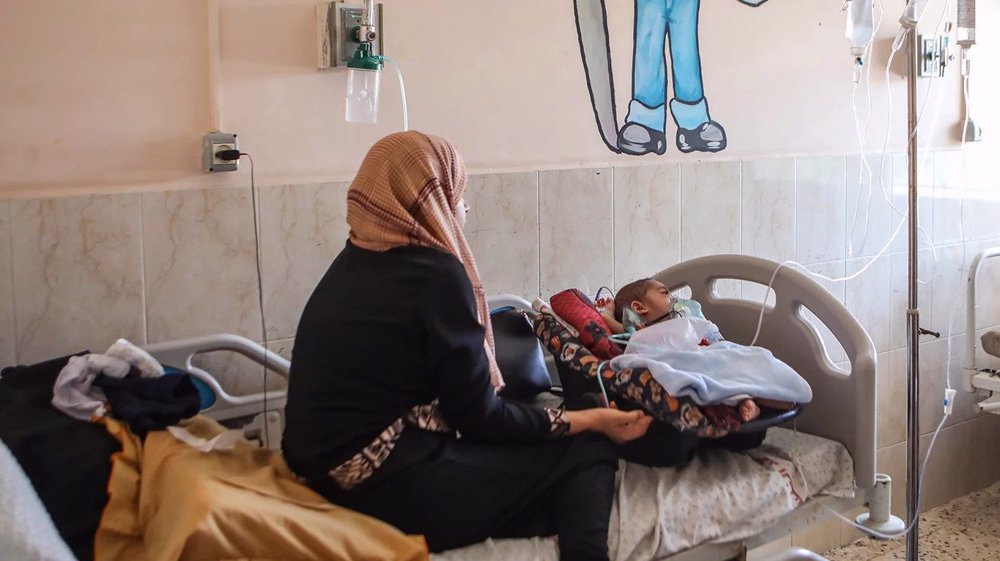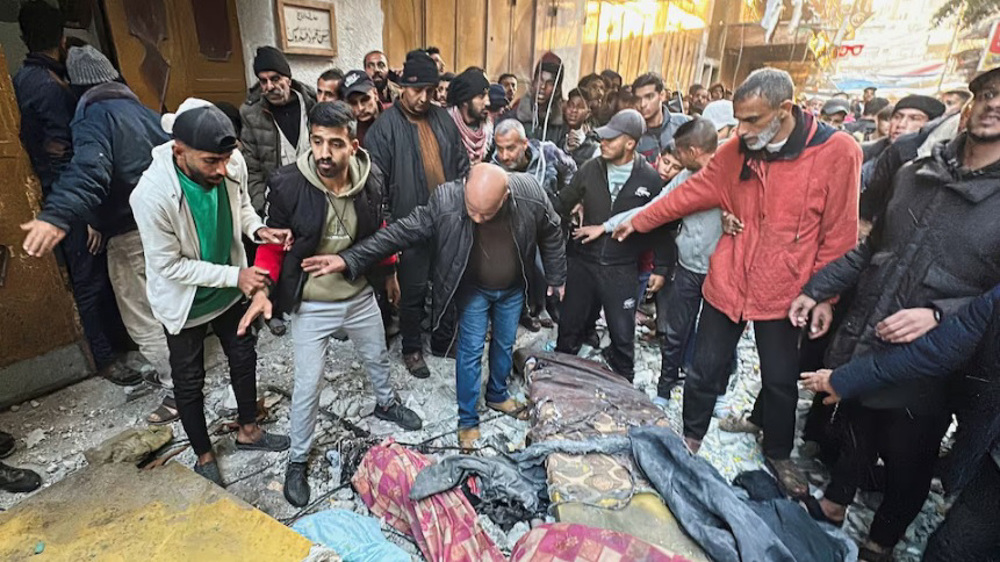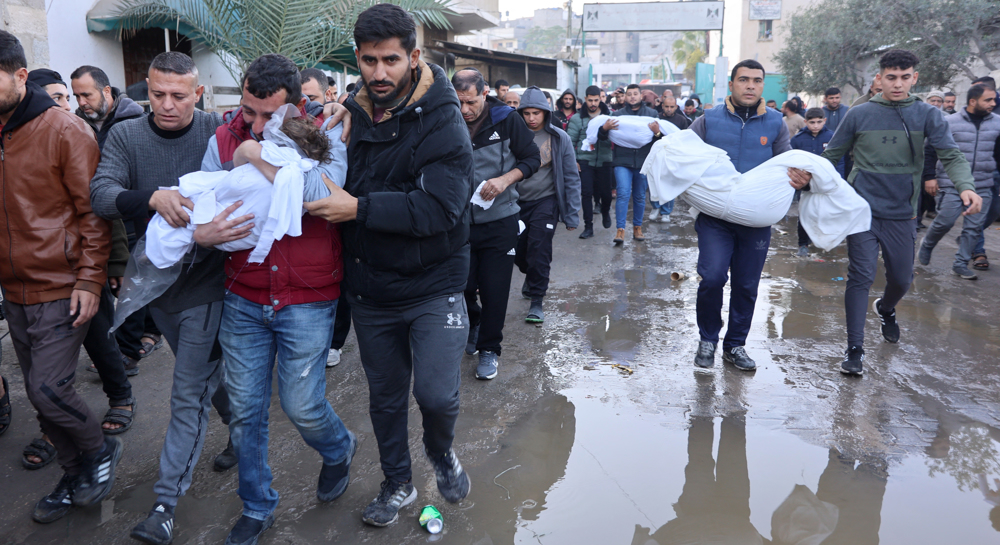Palestinian patients in Gaza face lingering death as Israeli all-out siege rages: Health official
The Palestinian Health Ministry in the besieged Gaza Strip has warned that the Israeli regime’s ban on the supply of medical equipment to hospitals have endangered the lives of hundreds of patients amid a years-long brutal blockade against the impoverished coastal enclave.
Ibrahim Abbas, director of the Ministry's department of radiology and technical imaging, raised the alarm as the occupying regime has imposed strict bans on the entry of medical devices to the Gaza Strip.
"For several months, the Israeli occupation has prevented the entry of medical devices into Gaza, including those specialized in imaging and diagnosis," Abbas said, stressing that the number of patients affected daily by the lack of medical imaging devices stood at 350 patients in various hospitals across the blockaded strip.
"The imaging devices in Gaza hospitals are currently suffering from problems and are difficult to repair due to the lack of spare parts and equipment required for maintenance," he said, adding that the lack of such services "delays the diagnosis of hundreds of patients, which increases the risk to their lives."
The Palestinian health official underlined that, "The need for these devices increases during the winter period, due to the increase in disease cases, especially with the respiratory system."
Read more:
Abbas called on international and human rights bodies to intervene immediately in order to stop the Israeli measure and enable the citizens of Gaza to regain access to medical services.
The Palestinian Ministry of Health had in previous statements warned that the Israeli blockade imposed for more than 15 years on the Gaza Strip deprived about 50 percent of Gazan patients of their treatment rights guaranteed by international humanitarian law inside and outside the Strip.
The Israeli regime’s crippling siege of the Gaza Strip for democratically electing the popular resistance movement Hamas has turned the enclave into the world's largest open-air prison and left many of its people destitute.
The occupying regime brought the entire enclave under land, aerial, and naval blockade in June 2007.
As a result of the siege, unemployment levels in Gaza are among the highest in the world, and as many as 1.3 million out of the 2.1 million Palestinians in Gaza (62 percent) require food assistance as well, according to the United Nations Office for the Coordination of Humanitarian Affairs (OCHA).
D-8’s role in Iran’s economy after Cairo summit
China slams US as ‘war-addicted’ threat to global security
China ‘firmly opposes’ US military aid to Taiwan
VIDEO | Press TV's News Headlines
President Yoon Suk Yeol to be removed from office
At least 19 Gazans killed by Israeli airstrikes since dawn: Medics
Leader: Iran neither has nor needs proxy forces
US fighter aircraft shot down ‘in friendly fire’ amid aggression on Yemen










 This makes it easy to access the Press TV website
This makes it easy to access the Press TV website